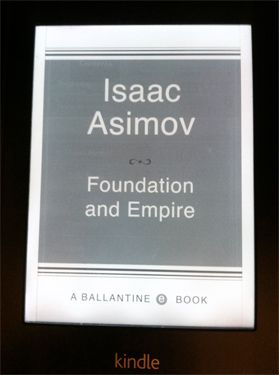No. 2: The Mule

Today's Hugo Novel I've Read is the Retro Hugo Best Novel winner for 1946, The Mule by Isaac Asimov. I've only read a little Asimov, so I read the entirety of Foundation and Empire for context's sake. However, I'll focus on The Mule (part 2) in this review.
What I Like: Holy mackerel is this story gripping. To be honest, after I'd got through The General (part 1 of Foundation and Empire) I was really wondering about this, because I felt like it lacked drama until the last third and the pacing was weird and it just wasn't gripping me at all. But once I got into The Mule I was gone.
This was just a rollicking story and I enjoyed it thoroughly. Asimov kept me jumping right to the end, the fake-outs didn't feel overly forced, and it actually took me a while to figure out the spoilery secret.
I was also surprised at how much I liked the characters. This sounds really backhanded, but to be honest the Asimov I've read to this point has been interesting in spite of the characters, not because of them. There wasn't great psychological depth or subtlety here, but I found myself just kind of liking a lot of the characters. So something good was happening there.
Something else that sort of snuck up on me; how interesting the central conceit proved. I've encountered the "genius scientist accurately predicts human development using complex equations!" thing before and I find it thoroughly annoying. There's probably little point going into why, but it really breaks my suspension of disbelief. However, once I'd gritted my teeth and swallowed that, I did find it interesting to think about the way Seldon's plan warped the various human societies in the story. In fact, I would have liked more of that, because it fascinated me.
What I Don't Like: For a story that is supposed to be science fiction, the worldbuilding is pretty half-hearted. Why does everyone smoke cigarettes? Why are there such massive monocultures? Why are the cultures so poorly developed and so suspiciously like mid-century America? So many lost opportunities!
Also, the thing where there was one female character of note and she was pretty much like the other female characters I've encountered in Asimov and she played a subordinate role for no apparent reason given that he establishes up front that she's plenty capable. I mean, I liked Bayta, but she really did not get a fair shake. If you're sensitive to that sort of thing it will probably frustrate you.
(Tangentially, I am not sure whether everyone was meant to be white or what, but the fact that they weren't described in great detail allowed me to imagine a very diverse universe. Take that as you will.)
Extra Thoughts: Here is one question that has nagged me from the start: why does this need to be set in space? I'm pretty sure the entire plotline could have taken place on a single planet without significantly altering anything. The spaceships and even most (not all, but most) of the futuristic technology was just set-dressing.
Maybe I need more context. Maybe the space element is more critical to other Foundation books. But it really, really didn't seem critical to this one. So... yeah. That's not a criticism, per se, just a thing I noticed.
My Recommendation: Read it! Don't go in expecting subtlety or contemporary mores, but it's a very interesting read and I think a lot of people can enjoy it for what it is.
Hugo-Worthy?: I'm going to say yes, but with a caveat; it really should have been taken further. The worldbuilding, the prose, the philosophical considerations--everything just could have been developed in greater depth, and it would have been a stronger work for it.